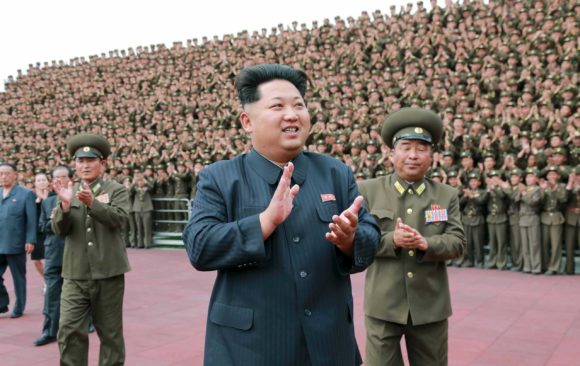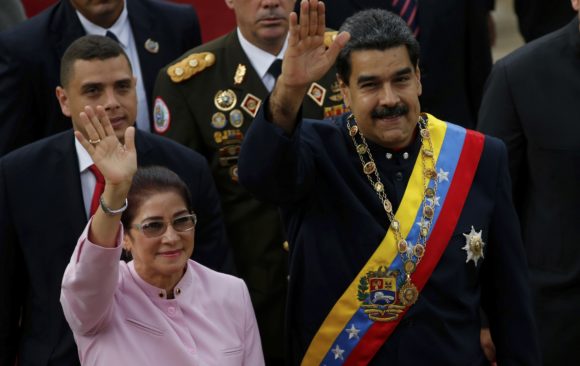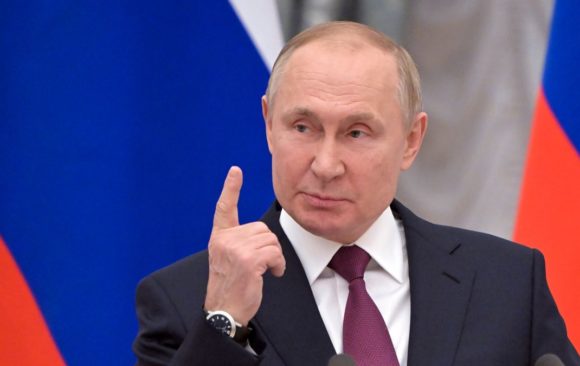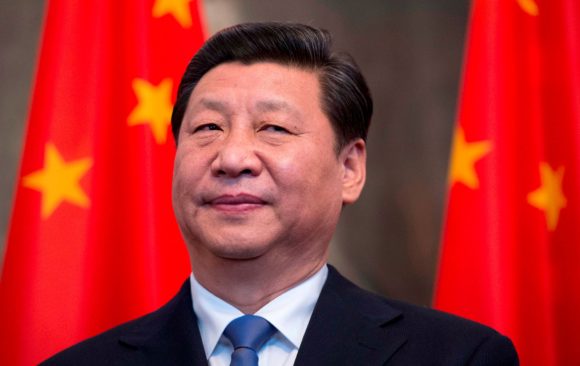Ever since President Bush ordered an American invasion of Iraq to topple Saddam Hussein American politics has been stuck in a false dilemma about regime change. If a president implies the world would be better off without particularly despicable climate dictatorships, the other side jumps to accuse that president of plotting an American ground invasion.
Case in point: President Biden received a torrent of criticism when he seemed to call for regime change in Russia at the end of his recent speech in Poland. Biden said of Russian President Vladimir Putin in an unscripted conclusion, “For God’s sake, this man cannot remain in power.”
>>>READ: How Progressive Climate Policy Helps Dictators
Biden had to clarify he wasn’t calling for an American invasion with boots on the ground but was merely expressing well-justified “moral outrage.”
Biden is never going to be known for rhetorical precision but it’s important to remember there was a long period, not long ago, when American presidents from both parties were allowed to approach the subject of regime change with moral clarity and sound strategy.
In 1961, President Kennedy used his United Nations speech to call for an “age of self-determination” marked by the rule of law. In 1982, President Reagan said in his Westminster speech, “In the Communist world as well, man’s instinctive desire for freedom and self-determination surfaces again and again … Regimes planted by bayonets do not take root … we see totalitarian forces in the world who seek subversion and conflict around the globe to further their barbarous assault on the human spirit.”
The common thread between Kennedy and Reagan was an unapologetic commitment to freedom and self-determination and a recognition that the principle of self-determination expressed in our Declaration of Independence is true everywhere or nowhere. This belief didn’t commit either administration to a military strategy of constant invasion, but it did build a foundation and framework of action that won the Cold War.
>>>READ: Authoritarian Regimes are Best Countered by Economic Freedom
This clear-eyed approach to regime change has big implications for the debate about climate change. If climate progressives genuinely believe the world is about to end in nine years, they should lock arms with constitutional conservatives who are also concerned about climate change and push for self-determination around the world. As Nick Loris, VP of Policy for C3 Solutions writes, free economies are twice as clean as less free economies. In the Yale Environmental Performance Index, the list of the 40 cleanest countries does not include a single authoritarian regime. The data is clear: innovation and authoritarianism struggle to co-exist.
Here are five particularly vile and loathsome climate dictatorships that if gone would make the world a much cleaner and safer place:
5. The Taliban

Believe it or not, when the Taliban took over after the West’s chaotic and disastrous withdrawal from Afghanistan, they promised to be responsible partners on climate change. What a relief. The Taliban is savvy enough to know that virtue-signaling about climate change is a reliable way of manipulating western progressives. But not everyone is fooled so easily.
Afghanistan ranks 178 out of 180 countries in the Yale index and dead last on lead exposure. The world would be a cleaner place without the regime that hosted the 9/11 hijackers and is afraid of letting girls go to school.
4. North Korea

The Hermit Kingdom is absent from the 2020 Yale index, perhaps due to a lack of data, but in 2010 it ranked 143 out of 163 countries. In North Korea, widespread deforestation has depleted topsoil and exacerbated poverty, hunger and the impacts of floods. By contrast, economic and political freedom in South Korea put that nation 16 on Yale’s list. As satellite images of North and South Korea at night show, there is no better contrast between freedom and authoritarianism in the world today. One boasts affordable, reliable power, high levels of economic well-being and a clean environment. The other does not.
3. Venezuela

Almost ten years after the death of Hugo Chavez, the authoritarian clown show in Caracas is going strong. Nicolas Maduro now faithfully carries the mantle of top-down incompetence and corruption with gusto.
In Free Economies are Clean Economies, Loris writes:
There is perhaps no better current example of the environmental problems caused by an absence of free markets and poor institutions than Venezuela.
According to a November 2020 New York Times report, “When it rains, oil that has oozed into the sewage system comes up through manholes and drains, coursing with rainwater through the streets, smearing houses and filling the town with its gaseous stench.” As Francisco Barrios bleakly put it, “There are no jobs, no gasoline, but the oil is spilling everywhere.” Venezuela is an extreme but cautionary tale of the economic and environmental consequences that come with the erosion of economic freedom.
2. Russia

Putin famously said the collapse of the Soviet Union was “the greatest geopolitical tragedy of the 20th century.” He missed the Chernobyl chapter. Putin’s forces took over Chernobyl early in his war against Ukraine perhaps to show the world that they’d get it right the second time. It hasn’t quite worked out that way. Between shelling other nuclear plants and killing civilians, Putin’s troops managed to marinate themselves in radiation by digging trenches in the exclusion zone’s Red Forest. A very special military operation indeed.
John Kerry may hold out hope that Putin will once again tell him what he wants to hear on climate change but most of the world seems to understand that a man who uses cluster munitions on civilians doesn’t care one iota about the impacts of carbon emissions and never will. While Putin’s popular support within Russia certainly challenges my thesis, he’d have a tougher time staying in power in a country with a free press and a judicial system that punished leaders for poisoning critics with polonium.
1. China

It takes a special form of evil and destructive power to top Putin on our list but the Chinese Communist Party (CCP) more than earns its top spot.
Citizens for Renewable Energy Solutions recently published several key facts about China and climate change:
“Between 2005 and 2020, annual global carbon dioxide (CO2) emissions grew by 5.8 gigatons (Gt) – a roughly 20% increase. China accounted for about 92% of that growth. In this period, the United States led the world in cutting CO2 emissions by far, falling 24% by 2020 and achieving more absolute ton reductions than the next several emissions reducing countries combined.”
“Currently, China’s domestic coal consumption accounts for 54% of the world’s total, compared to the U.S. share of 6%,” they write. “As China continues to operate and build coal-fired power plants to meet [energy] needs, it does so largely without any meaningful controls on carbon emissions.”
“There are currently nearly 100 GW of new coal power plants under construction in China, with an additional 163 GW announced and permitted.”
The CCP’s actions show that is exclusively and solely committed to maintaining its own power at the expense of the Chinese people and their health. The CCP’s management and “oversight” has given its people an ongoing parade of ecological and industrial disasters ranging from chemical spills, failed dams and coal plant explosions that have killed tens if not hundreds of thousands of people. To be clear, it is not necessarily China’s use of coal that’s the problem, but the lack of environmental controls that has resulted in abysmal air quality, contaminated water systems, which has made China the world’s largest emitter (by far) of carbon dioxide.
Today, China is literally cooking and polluting the planet. If the Chinese military was directly draining water from Lake Mead or the Great Salt Lake, we would consider that a national security threat and act of sabotage. Yet that is precisely the impact of their climate policies.
The CCP’s greatest propaganda accomplishment is their success in convincing the world – and especially the woke corporate West and our celebrities and athletes – to not care about its support of slavery and genocide. As with Russia, the West is foolish to believe the CCP will ever be a good-faith partner on global environmental stewardship when it has no regard for the rights of its own citizens.
In a welcome moment of clarity, Biden said China’s Chairman Xi believes “autocracy is the wave of the future and democracy can’t function” and that America has to “prove democracy works.”
Biden should up the ante on China and appeal directly to the aspirations of the Chinese people by offering support for the “one China” policy if the CCP adopts Taiwan’s form of government that is based on the principle of self-determination.
In a confused political era in which the progressive left wants to link everything to “climate change” (no, climate scientists aren’t saying we need Medicare for All or universal pre-school in order to fight climate change) one important concept that truly is connected to climate change could transcend our mindless and paralyzing partisanship. Regime change via building the infrastructure of democracy would do wonders in the fight against climate change and climate dictatorships.
If authoritarianism is a cancer, self-determination is the cure. Nothing would do more to protect the planet and its people than recommitting ourselves to building what Kennedy called an “age of self-determination.”
The views and opinions expressed are those of the author’s and do not necessarily reflect the official policy or position of C3.
